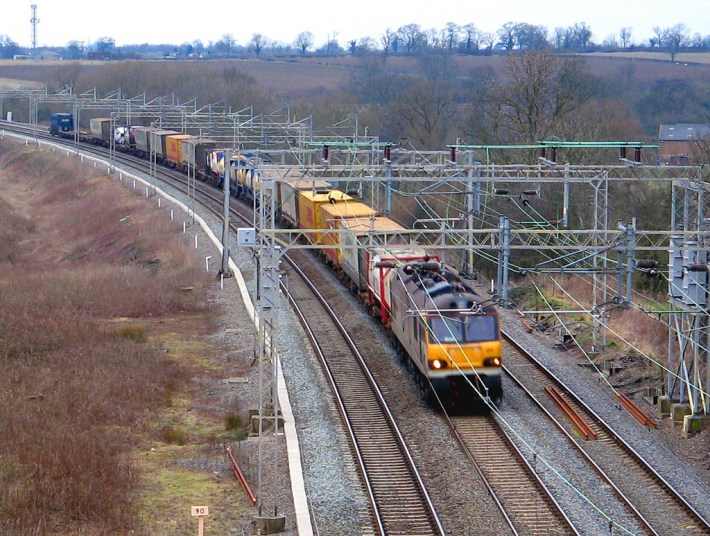Economic competitiveness and sustainability -- when it comes to the performance of North America's freight system, the two terms are nearly synonymous. That is the key finding from a new report by NAFTA's Secretariat of the Commission for Environmental Cooperation.
While fuel saving technologies are expected to reduce emissions from passenger vehicles by 12 percent over the next 20 years, emissions from freight trucks are expected to rise 20 percent over that time. The CEC says this presents not just an environmental problem but an economic one: how can the NAFTA countries stay competitive when they're spending so much money on fuel?
The best practices on North American rail and roadways come down to efficiency -- largely fuel efficiency. In its report, "Destination Sustainability: Reducing Greenhouse Gas Emissions from Freight Transportation in North America," the CEC cautions the US, Canada and Mexico against failing to adopt fuel-saving innovations. Regions such as Europe and Asia threaten to erode North America's competitive advantage if immediate and sustained action is not taken to streamline and green the flow of goods across the three nations.
The current fuel performance of North America's freight fleet is cause for concern. According to the CEC, freight-related emissions grew 74 percent between 1990 and 2008, compared with 33 percent from passenger vehicles.
The CEC's advisory council, representing stakeholders from industry, academia, the environmental sector and government, produced the following recommendations, among others:
- Introducing carbon pricing
- Integrating land use and transportation decisions
- Providing incentives to promote fuel-saving technologies
- Training drivers in fuel-efficient practices
- Reducing waiting periods at borders
- Promoting fuel efficient modes
- Improving collaboration and data retention among the participating governments
- Developing a robust funding mechanism for infrastructure improvement
- Promoting better alignment of existing infrastructure
CEC Executive Director Evan Lloyd urged the US, Canada and Mexico to act swiftly to develop an "integrated, intelligent freight transportation," otherwise there could be dire consequences.
“Without such a vision, and the transformational investments that go with it, emissions from freight transportation will continue to increase and the NAFTA countries will risk losing their competitive edge,” Lloyd said. “But the report identifies clear opportunities, especially in light of infrastructure-related stimulus investment, to get this right.”






